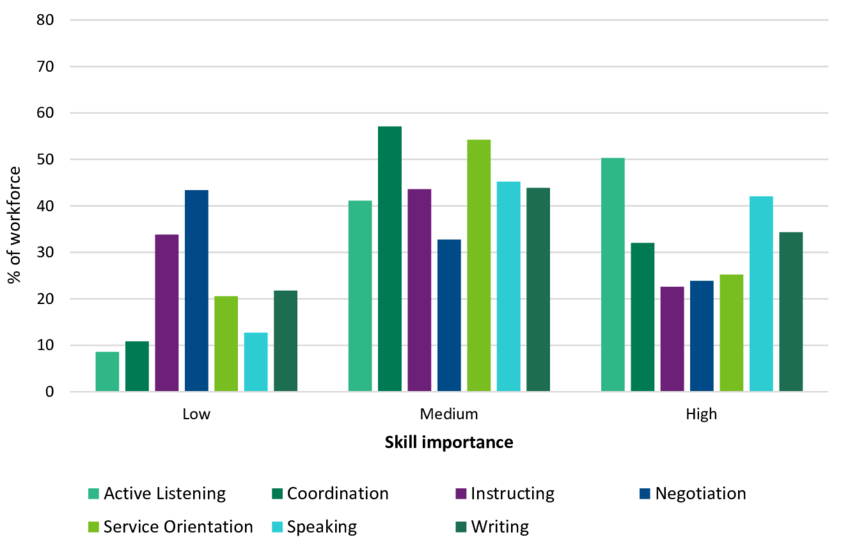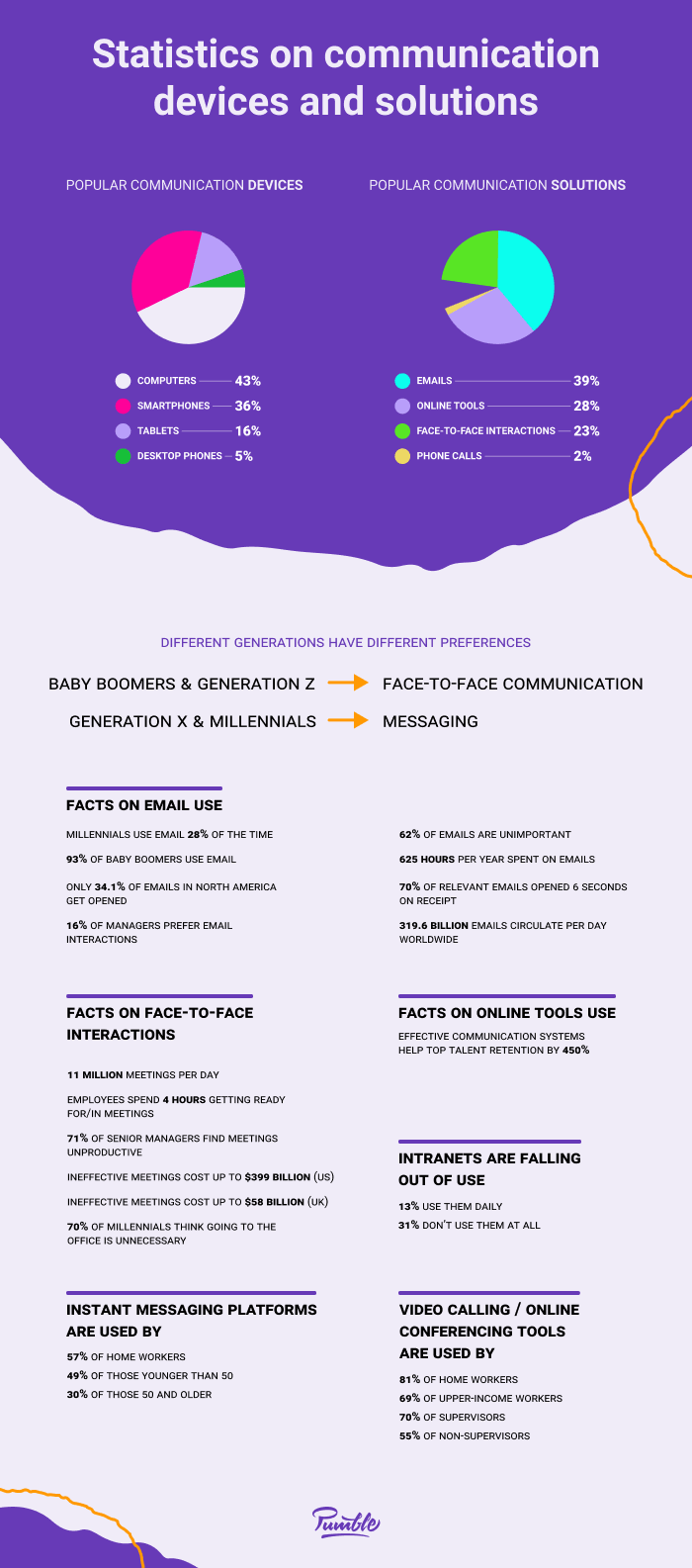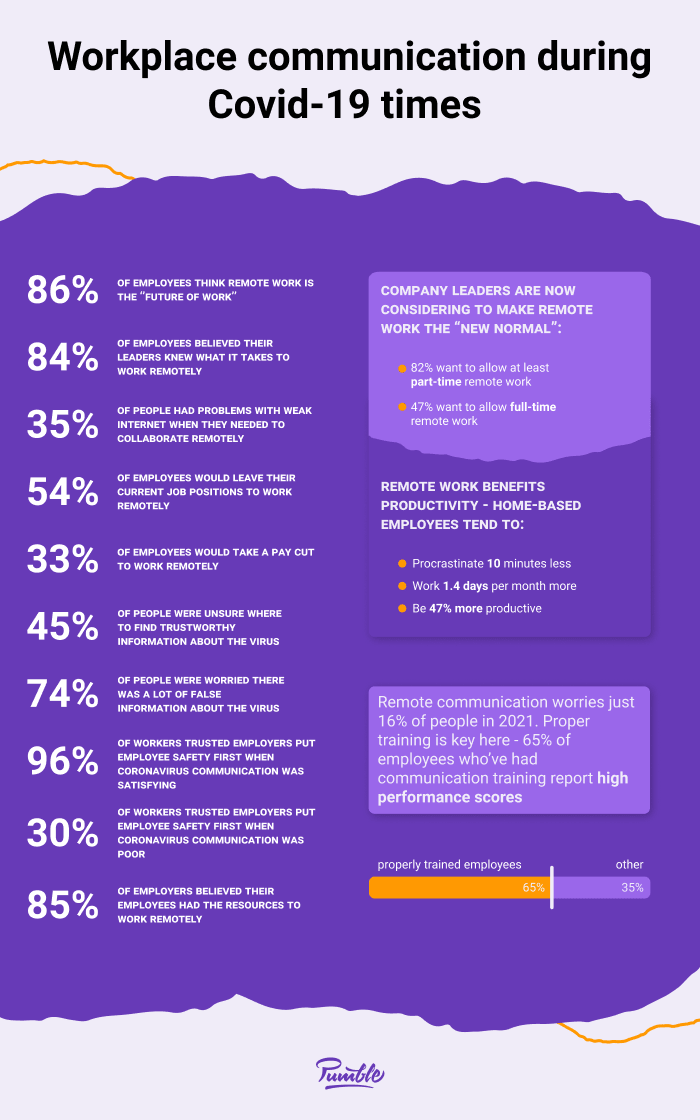
Do you know that according to Salesforce, ineffective communication skills and insufficient collaboration are recognized as reasons for workplace failures by 86% of business leaders, trainers, and employees?
One of the most important skills you need to develop to succeed in any job is good communication skills. These skills help you express your thoughts and ideas effectively and exchange information so that others can understand. You must apply these skills in your personal and professional life.
The key to success lies in good communication skills. We all know that the need for communication is present everywhere, whether it be professionally or personally.
Whether you are an engineer, software developer, or even a digital marketer in today’s fast-growing digital era, it doesn’t matter. You need to have good communication skills to put forth your ideas.
In this blog, we will be discussing the various aspects of good communication skills. We will also answer the most common question – “How can I improve my communication skills and become a proficient communicator.”
What does the term “Good Communication Skills” signify?
The term good communication skills signify the ability to converse properly and make an impact on the people with whom you converse. For some, good communication skills might come naturally, but others might have to develop them.
What Is The importance of Good communication skills?

If you have good communication skills, you will be able to stand out among a crowd of people, and you will be able to have an effective discussion or a meeting with them. If you are an expert communicator, you will be considered more trustworthy, and you will be able to help your team work together better.
So, if you are someone who is blessed with good communication skills, you will have a sense of reliability, and you will have strong professional relationships. If you have these things, you will be more productive, and you will be able to do your job better.
According to a McKinsey analysis, well-communicated teams have a 20-25% gain in productivity.
This rise has an influence on task work; according to CMSWire, 97% feel communication has an impact on their task efficiency on a daily basis.
What are the 7 C’s of communication with examples?

Let’s move ahead and talk about – “What are the basic principles of communication?”
Whether you’re going in for a verbal or written form of communication, knowing about the 7 C’s of communication is always a plus point. Here we’ve explained all 7 points in enough detail.
1. Clear
The first thing you should ensure while communicating is that you are using easy words so that the other person can clearly understand the message you’re trying to convey.
2. Concise
Try to make your message to the point and possibly short. This will make your message easier to comprehend and will also take less time for the listener to interpret the information.
3. Correctness
Correctness of the text is an important aspect to consider while communicating with someone. When your content is factually and grammatically correct, it will positively impact the reader and increase your credibility.
4. Complete
Before you say anything, make sure you complete your conversation. If any information is missing or flawed, it will lead to gaps in understanding and breakdowns in communication.
5. Concrete
While communicating, make sure you add important facts and figures to your content to make it more reliable. Once you do this, your messages will receive higher credibility, and communication will seem more effective. Moreover, prefer to use words that match the topic of discussion and make it easier for the other person to grasp it.
6. Courteous
Being courteous and understanding would give you an edge and add to your communication skills. The listeners will appreciate you more when they are treated with dignity and respect and make them feel that their time is valuable. It’s suggested to introduce humour since that will add to the interest of the audience.
7. Coherent
When you are having a meaningful conversation, make sure that the content you use is coherent or logical. This means that you can give your message a certain structure and use easy words so that people can grasp the in-depth meaning.
What are 9 skills that contribute to effective communication?

It is not particularly difficult to develop your communication skills and become a conversationalist.
Once you start your journey to become better at communication skills, you need to make sure that you’re utilizing every opportunity to converse and use it to communicate better.
1. Self Confidence

Confidently expressed ideas and opinions generate a better impression on the people with whom you are talking. Being self-assured demonstrates your authority on the subject and allows your audience to trust your abilities.
Maintaining eye contact, maintaining proper body posture, and expressing thanks are all ways to demonstrate confidence in interactions. All of these factors will help you connect better with your audience and make a lasting impression.
If you want to master the art of communication, you must first develop self-confidence. However, there is a fine line between confidence and arrogance that you should never cross. It’s really common.
2. Respect
When you and your audience appreciate one other, communication is always successful. You should respect the views and opinions of others during a conversation and allow them to talk freely about whatever is on their mind.
You are wrong if you assume that you are the only one who should be speaking while talking. Communication, as you may have heard, is a two-way street.
Forcing your ideas on others never works out well, and it almost always leads to the collapse of the entire communication process. Being respectful towards your audience gives an incentive for them to hear your thoughts.
3. Active Listening
Hearing and listening are two entirely different things. Hearing merely involves receiving sound (in the form of words and sentences); listening includes hearing the words and sentences first and then processing them to comprehend their meaning.
As we previously stated, communication is all about exchanging and receiving information. To grasp what people are saying, you must be an engaged listener. You will be unable to comprehend the message if you only hear and do not listen. As a result, if you talk with someone and they notice that you aren’t paying attention to what they’re saying, the conversation will end quickly.
4. Emotional Intelligence

Emotional intelligence is a skill that you need to be successful at work. It is the ability to control and use your emotions to be more persuasive.
Emotional intelligence is important because it allows you to communicate more successfully and also to form friendly relationships. It also allows you to express your feelings to others. Sharing your emotions with others can also help you to feel less stressed and be happier.
Another part of emotional intelligence is the ability to recognize other people’s emotions. When speaking with your employee or colleague, they should feel confident that you will comprehend and connect with their emotional condition.
5. Tone and volume
Your voice’s tone and volume are critical in creating the ideal ambiance for a good conversation. The tone of your message will have a significant impact on the impression it makes on the audience. A calm and constant tone of voice is suggested to connect better with your audience.
The tone, however, can vary depending on the situation. When speaking with a customer, you should be cool, whereas when delegating crucial responsibilities to a team member, you should be confident and authoritative.
Apart from tone, the amplitude or loudness of your voice is also important. People will have difficulties comprehending what you’re saying if your voice is too low. On the other hand, a loud voice comes out as forceful and likely to irritate the listeners.
To make people more comfortable interacting with you, you must balance both the tone and volume of your voice.
6. Open feedback

Feedback, to be honest, may be frightening at times. However, it is a necessary component of efficient communication. Critical feedback is usually positive for good communicators since it helps them understand the impact of their message or information.
The reaction you receive from the people with whom you communicate is known as feedback. It enables you to determine how well your communications are being received by your target audience. Furthermore, constructive feedback identifies areas in which you may enhance your communication skills.
During a conversation, you should invite your listeners to give their comments on the facts you’re presenting as well as how you’re expressing your thoughts and ideas. This will allow you to acquire relevant feedback from the audience and will make it easier for you to evaluate your communication strengths and flaws.
7. Ready to adapt
It’s simple; you can’t speak to everyone in the same way. You must switch between different communication techniques based on your target audience. Therefore, you should determine whether your communication style is ideal for individuals or groups before speaking with them.
On any given day, you are likely to be communicating with people of varying education levels, coming from different backgrounds and with different values. It is up to you to find a way to communicate that resonates with everyone, regardless of their background.
When you only need to share a small amount of information, instant messaging and emails are ideal. On the other hand, these techniques are ineffective when the information you want to impart is complex.
8. Non-Verbal Communication
Verbal and written communication aren’t the only ways to communicate. Nonverbal communication is another efficient means of conveying your message. When communicating, visual clues are quite useful.
Body language, facial expression, eye contact, and other nonverbal cues can help your audience better comprehend the information you give. You should concentrate on nonverbal communication since your audience observes your visual clues, whether you intend them to or not.
Leverage the Powers Of the latest communication technologies

When it comes to communication skills in the workplace, adopting technology to communicate with your coworkers is a must. To help team members stay connected, most firms now use top communication solutions like chat software, video conferencing software, and so on.
The popularity of digital communication is continuously increasing, so you must stay up to date on all of the latest communication technology. You should be willing to try new ways of communicating and collaborating with your coworkers.
Tired of this 9 am to 5 pm work culture?
Nothing to worry about! You can make more money than your job by freelancing.
Here is an amazing video tutorial of the best freelancing websites from where you can earn money online while working from home without any stress!
What are barriers to communication?

Good communication skills will certainly lead to favorable outcomes and help you thrive in your work life. However, simply having the right abilities isn’t enough to ensure that each of your communication sessions runs smoothly.
There will always be certain challenges in your path, but you must learn to avoid them or grow from them. Some of the most common communication barriers are as follows –
1. Racial and vernacular differences
This is common in places of work where people from various ethnic backgrounds come. The best way to overcome this is by respecting other people’s cultures and the way they express themselves.
2. Being judgemental
Being judgemental is one of the worst things one can do if one expects a positive output from the conversation. If one expects any sort of input from a certain conversation, they should try to keep their personal preferences aside and try their best to be on the same page.
3. Lacking the passion
One cannot have a good conversation if they don’t believe in what they are saying. Believing in your words and your facts is one of the crucial steps toward improving your communication skills. One should always match the other person’s energy while talking to them to make the conversation more fun and happening.
Lack of energy can negatively impact, and a dull tone of voice might disengage the person you converse with. To cover this barrier, you should be interested in the message you’re trying to convey. And you should convey it with confidence.
4. Physical Communication Barriers
Physical aspects of your surrounding can deter the levels of conversation.
For example: Talking to a person in a quiet and boring environment will be more interesting when compared to talking to someone with dozens of vehicles passing by and an extremely noisy background.
The rise of covid-19 has increased the number of physical barriers by a significant number!

Boost Your Career Growth By Mastering Communication Skills!
If you are looking for a job in a professional setting, you need to be able to communicate well with the people around you. The better you can communicate, the better the impression you will make on your bosses and coworkers. With this in mind, you should take the time to improve your communication skills. The tips we’ve given you here should help you do just that.
For more such informative blogs, stay connected to PenChise!
You can also get in touch with us on Instagram, don’t forget to hit the follow button❤️



